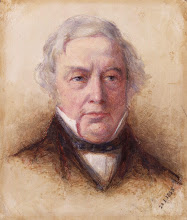The recent harsh sentencing of anarchist Travis Riehl by a Spokane judge invites any of a number of commentaries. For example: What does breaking windows at military recruitment centers have to do with political protest? Why is it worse to damage government property than private property? Has the sentencing judge ever had an independent thought? What exactly is an anarchist and are they dangerous? But let us just look at the last issue. Of course, in this brief note I can not give a full explanation of anarchism, so I want to simply direct the readers to where they had best go for the details, with an inkling as to what they will find. For the dangerous part see a couple blogs back - in short, anarchists can be dangerous when pushed to the wall with injustice.
As an aside, it is odd that the local paper insists on referring to Travis as a self-styled anarchist. There is no other kind. In fact, Travis wrote a clever and mocking letter to the paper on this point but, clearly, it fell on deaf ears.
Many things about anarchism need to be clarified. But I believe it is probably important to first note that it is not helpful in trying to understand anarchism that members of the press so often confuse this perfectly legitimate social and political theory with chaos and criminality. And they do this is in spite of the fact there are so many worthwhile sources available on the subject.
Please understand that there is no anarchist club or party that one joins to become an anarchist. If one agrees in general with any of a number of past political philosophers who have been considered by themselves and most everyone else to espouse anarchism, then one calls himself or herself an anarchist. The first such writer to call himself an anarchist was Pierre Proudhon (1809-1865) and the title stuck.
Proudhon was a member of that constellation of primary anarchists which also includes the following: William Godwin (1756-1836) , Peter Kropotkin (1842-1921), and Mikhail Bakunin (1814-1876). Godwin is often called the father of philosophical anarchism. The great poet Percy Bysshe Shelley was his son-in-law and he also expressed many anarchistic ideas in his poetry and prose, much of which is required reading in our public schools. Proudhon and Bakunin had long running disagreements and feuds with their contemporary Karl Marx.
I'll mention just one more anarchist personality you might want to read, even though there are hundreds out there. And that is Emma Goldman. In the first two decades of the last century Red Emma's name was the first thing to come to an American's mind when he or she heard the word anarchism. In Warren Beatty's movie Reds you can watch her character debate the Marxist John Reed character over the issues of the day, like the war.
Alan Ritter has done much to legitimize anarchy as a political philosophy in contemporary academic circles. In his 1980 book, Anarchism, - A Theoretical Analysis, he rejects the commonly held idea that liberty is the chief value of an anarchist. He proves this with a careful reading of Godwin, Proudhon, Bakunin, and Kropotkin. The alternative chief value he ferrets out is communal individuality.
Subscribe to:
Post Comments (Atom)


No comments:
Post a Comment